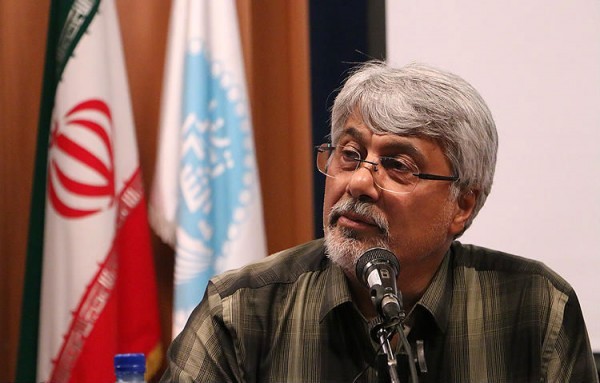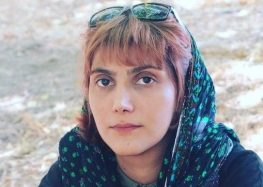Ailing Reformist Journalist’s Prison Sentence Reduced

Additional Charge Against Issa Saharkhiz Remains Pending
Prominent reformist journalist Issa Saharkhiz’s prison sentence has been reduced based on Article 134 of the New Islamic Penal Code, his lawyer, Mahmoud Alizadeh Tabatabaee, told the International Campaign for Human Rights in Iran.
“Branch 28 of the Revolutionary Court changed its ruling against my client from three years in prison to 21 months,” said Tabatabaee. “Given his health condition, we will request conditional release for Mr. Saharkhiz. We’re hopeful that he will be freed soon.”
Tabatabaee added that Saharkhiz is still facing the charge of “insulting the judiciary chief and the president,” but it remains unclear how or when he would be put on another trial.
Saharkhiz, three other journalists and the brother of an Iranian dissident journalist were all arrested on November 2, 2015 during a wave of arrests by the Revolutionary Guards’ Intelligence Organization. They were accused of being part of a foreign-instigated “infiltration” plot to spread anti-Iranian propaganda.
Saharkhiz has been hospitalized—after being denied timely medical treatment—for severe heart disease since March 9, 2016.
Political prisoners in Iran are singled out for particularly harsh treatment, which often includes denial of medical care.
On August 8, 2016 Judge Mohammad Moghisseh of Branch 28 of the Revolutionary Court sentenced Saharkhiz to three years in prison for “propaganda against the state” and “insulting the supreme leader.”
“We did not appeal the verdict, but the same court reduced the sentence to 21 months based on Article 134 of the New Islamic Penal Code,” said Tabatabaee.
In cases involving convictions on multiple charges, Article 134 allows for only the longest sentence to be served.
“The court insists my father insulted the supreme leader but [Ayatollah Seyyed Ali] Khamenei has often said that no one should be punished for saying or writing something against him,” said Saharkhiz’s son, Mehdi Saharkhiz, in an interview with the Campaign.
“According to the Islamic Republic’s Constitution, my father should be immediately released from prison because no citizen can be imprisoned for expressing his or her opinion,” he added. “My father has done nothing wrong; he only expressed his views.”
Mehdi Saharkhiz said his father was charged with “insulting the supreme leader” for referring to Supreme Leader Ali Khamenei as “Casino Seyyed Ali.”
In a letter written a day before Issa Saharkhiz’s hospitalization (published on his son’s Facebook page), he wrote: “Most of the time I’m held in solitary confinement, which is the very definition of ‘white torture.’ If another person came into my cell, it was only to take care of me for all the various diseases I’m suffering from. I have frequently fallen down in my cell, in the cafeteria and in the courtyard because of low blood pressure.”
Saharkhiz previously spent nearly five years in prison for publishing political commentaries critical of the widely disputed results of Iran’s 2009 presidential election. He previously served in President Mohammed Khatami’s reformist administration (1997-2005) as head of the press department at the Ministry of Culture and Islamic Guidance.






